Faculty
Tenure-Track Faculty
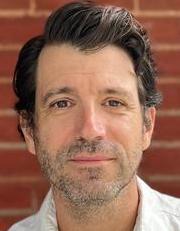
Isaac Peter Campos
Professor, History
320D ARTSCI
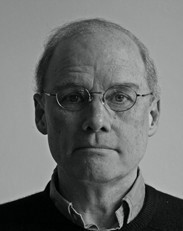
Wayne K. Durrill
Professor, History
355 ARTSCI
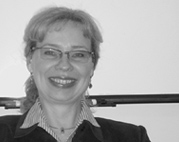
Sigrun Haude
Walter C. Langsam Professor of European History, History
320B ARTSCI
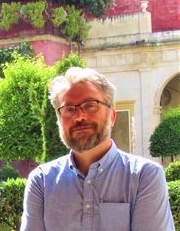
Robert J Haug
Associate Professor, Director of Undergraduate Advising, History, History
331 ARTSCI
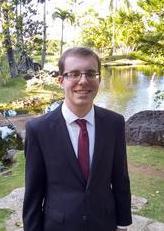
Michael William Kraemer
Asst Professor - Visiting (F6), History
I teach the history of Vast Early America and stress the global connections to the North American continent. I use custom-made historical simulations to engage students on a variety of subjects (from Indigenous-Colonial politics in the 1700s to the making of the New Deal in the 1930s).
As a teacher and researcher, my goal is to make history accessible (and interesting!) to the public.
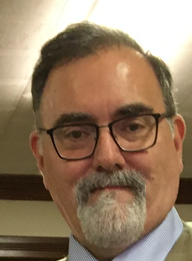
Jason N. Krupar
Associate Professor, History
310E ARTSCI
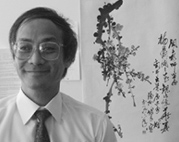
Man Bun Kwan
Associate Professor, History
303 ARTSCI
Professor Kwan specializes in modern China, particularly its business, economic, legal, and social history. When traveling in China, he enjoys rummaging through local markets for land deeds and contracts. His "Salt Wars" has been published by Hawaii University Press, 2022.
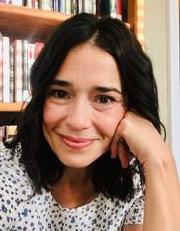
Brianna N. Leavitt-Alcántara
Associate Professor, History
ARTSCI
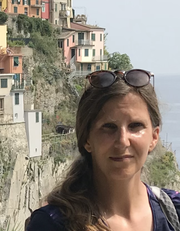
Susan Longfield Karr
Associate Professor, Department of History Affiliate Associate Professor, SPIA, History
310C ARTSCI
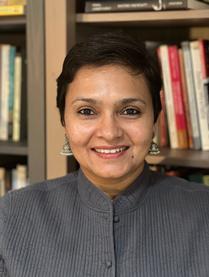
Rochisha Narayan
Asst Professor (F2), History
Rochisha Narayan is a historian of Early Modern and Modern South Asia. She is interested in exploring histories of family and community, colonialism, law and capital, and women’s movements and social protests through the lenses of gender and sexuality. Her book manuscript titled, “Agents of Capital: Widows, Family, Community and Law in Early Colonial India” studies widows in the transition to colonial rule to offer a gendered history of capital, sovereignty and law in early modern India. She is working on a second project which examines the production of genealogy and family history as contingent practices of status formation, negotiation and control in modern India. She has experience teaching a wide range of survey and upper-level courses on South Asia as well as global and comparative courses on women’s and gender history and world history.
Peer-Reviewed Publications
‘Agents of Capital: Matriarchs, Law and Agrarian Transactions in the Eastern Gangetic Plains of Eighteenth-Century India’, Modern Asian Studies, Volume 58 , Issue 3 , November 2024 , pp. 655 – 685.
‘Making Modern Mughals: Gendered Labor, Colonial Governance, and the Stratified Household in Colonial India,’ Gender & History, published online May 2023, https://doi.org/10.1111/1468-0424.12700
‘A Mughal Matriarch and the Politics of Motherhood in Early Colonial India,’ Journal of Women’s History, Vol. 32, Number 2, Summer 2020, 149-151.
‘Widows, Family, Community and the Formation of Anglo-Hindu Law in Eighteenth-century India,’ Modern Asian Studies, Vol. 50, Issue 3, May 2016, 866-897.
Book Reviews
Review of Asiya Alam, ‘Women, Islam and Familial Intimacy in Colonial South Asia’ (Leiden: Brill, 2021) in Indian Economic and Social History Review, Vol. 60, Issue 2, April-June 2023, 231-243.
Review of Chandrima Chakraborty, ‘Masculinity, Asceticism, Hinduism: Past and Present Imaginings of India’ (Delhi: Permanent Black, 2011) in South Asian History and Culture, Vol. 4, Issue 3, July 2013, pp. 428-431.
Non-Refereed Publications
‘Gandhi, Indira’ in Bonnie Smith (ed.), The Oxford Encyclopedia of Women in World History, Vol. 2 (New York: Oxford University Press), 2008, p. 345.
‘Kripalani, Sucheta’ in Bonnie Smith (ed.), The Oxford Encyclopedia of Women in World History, Vol. 3 (New York: Oxford University Press), 2008, pp. 41-42.
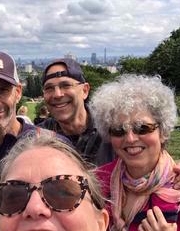
Maura O’Connor
Associate Professor, History
320E ARTSCI
My current book project reflects an ongoing curiosity about cultures of finance capitalism. It attempts to write a cultural history of risk and speculation by assessing how capital moved across all kinds of borders and boundaries around the 'stock-jobbing globe' during the nineteenth century. Titled "Risking the World: The London Stock Exchange and the British Financial Empire, 1801-1910," it tells the story of the world of international finance, the culture of risk capital, and the gendered politics of speculating and investing in the British Empire from the Napoleonic Wars when the financial center shifted from Amsterdam to London to the aftermath of the South African War when London's financial supremacy was seriously challenged.
I have another book in the making, this one, a collection of essays. "Desire in the Archive," is about grief, the body, intimacy and desire, characters in nineteenth century novels and the metaphorical arc of time's passage in coming to terms with loss. Part memoir and part historian’s meditation, this book attempts to use the tools of our trade and the particular idioms of history to analyze houses with their shifting perspectives in place and time; the evidence of (personal) experience and to explore, at the same time, the ways in which memories and emotions become embodied in representations and material culture as well as embedded in the landscape.

Shailaja D Paik
Taft Distinguished Professor of History and Affiliate Faculty in Women's, Gender, and Sexuality Studies, and Asian Studies, History
340 B ARTSCI
My first book, Dalit Women's Education in Modern India: Double Discrimination (Routledge, 2014 ), examines the nexus between caste, class, gender, and state pedagogical practices among Dalit ("Untouchable") women in urban India. My second book, The Vulgarity of Caste: Dalits, Sexuality, and Humanity in Modern India (Stanford University Press, 2022 https://www.sup.org/books/title/?id=34163) analyzes the politics of caste, class, gender, sexuality, and popular culture in modern Maharashtra. The book won two prestigious awards: the American Historical Association's John F. Richards Prize for "the most distinguished work of scholarship on South Asia" (https://www.historians.org/award-grant/john-f-richards-prize/) and the Association of Asian Studies Ananda Kentish Coomaraswamy Prize (https://www.asianstudies.org/aas-2024-prizes/). I am working on several new book projects: Caste Domination and Normative Sexuality in Modern India; Caste, Race, and Indigeneity in and beyond South Asia; and the Cambridge Companion to Dr. B.R. Ambedkar.
My research is funded by the MacArthur Foundation, the American Council of Learned Societies, the Stanford Humanities Center, the National Endowment for the Humanities, the American Institute of Indian Studies, Yale University, Emory University, the Ford Foundation, and the Charles Phelps Taft Research Center, among others. I have published several articles on a variety of themes, including the politics of naming, Dalit and African American women, Dalit women’s education, new Dalit womanhood, and kissing and nationalism in prestigious international journals.
I am the Founding Executive Director of "Ambedkar-King Institute for Social Transformation (AKIST)"--a hub for transdisciplinary research, innovative pedagogy, and community partnerships for inclusive social action. I co-organized the "Fifth International Conference on the Unfinished Legacy of Dr. Ambedkar" at the New School of Social Research.
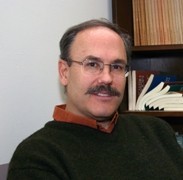
Christopher Phillips
John and Dorothy Hermanies Professor of American History and University Distinguished Professor in the Arts, Humanities, and Social Sciences, History
335C ARTSCI
I was raised in the Midwest and educated there and in the South, and so I have a particular interest in American regions and I have published a number of books and essays on the Civil War era. My particular focus has been in the Border States, whether slave states that did not secede from the Union or free states that were deeply divided before and during the American Civil War and in its aftermath.
My published books have focused variously on slavery and freedom, emancipation, war, race, politics, and memory during and after the Civil War era. They include Damned Yankee, a study of the military and political events in the border slave state of Missouri through the life of a controversial military commander there; Freedom's Port, a social history of the African American community of Baltimore, Maryland, in the early national and antebellum periods; Missouri's Confederate, the life and political career of a controversial Missouri Civil War governor as a lens into the development of southern identity in the Border West; The Union on Trial and The Making of a Southerner, the edited political journals and classroom-length companion biography of a northern-born Missouri supreme court justice in the mid-nineteenth century, which together assess the development of proslavery ideology in the American West; and more recently The Civil War in the Border South, a brief social and cultural history of the Civil War and its aftermath in the border slave states.
My most recent book, The Rivers Ran Backward: The Civil War and the Remaking of the American Middle Border (Oxford University Press, 2016), examines the fluid political cultures of the "Middle Border" states during the Civil War era. The war there was one fought within the peoples and populations of the West, rather than between the sections, and permanently reshaped American regional identities. The book has received a number of awards and recognitions, including the 2017 Tom Watson Brown Prize for the best published book on the Civil War from the Society of Civil War Historians; the 2018 Distinguished Book Award from the Society of Military Historians; the 2017 Jon Gjerde Book Prize, the Midwestern History Association's top award given for a book on midwestern regional history; the 2017 Distinguished Book Award by the Ohio Academy of History; and the 2017 Missouri History Book Award from the State Historical Society of Missouri. It was named a Best Book of 2016 by Civil War Monitor, a Choice Outstanding Academic Title for 2017, and was a finalist for the 2017 Ohioana Book Award for Non-fiction. https://global.oup.com/academic/product/the-rivers-ran-backward-9780195187236?cc=us&lang=en&#
I have published dozens of peer reviewed and invited essays in such venues as Civil War History, Journal of the Civil War Era, and The New York Times. As a Distinguished Lecturer for the Organization of American Historians, my work has been supported by the National Endowment for the Humanities, the Andrew W. Mellon Foundation, the American Philosophical Society, and the American Antiquarian Society (in which I am an elected member), among others. In 2013 I was a Fulbright scholar in the Czech Republic. I live in Glendale, Ohio, the nation's first planned community (1855) with my wife, Jill, a high school mathem
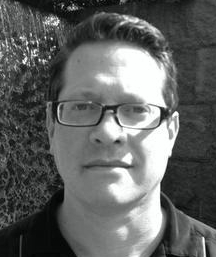
Stephen Porter
Associate Professor, History
301C ARTSCI
The working title of his current book project is, “Liberalism and Humanitarianism at War: American Approaches to National and Human Security Crises in World War II.”
At the University of Cincinnati, he has served as director of the International Human Rights Certificate, chair of the Tolley Scholarship in International Human Rights, chair of the Taft Center’s Human Rights Research Group, and, beginning in fall of 2024, Director of Graduate Studies for the Department of History. A former fellow of the Institute for Historical Studies at the University of Texas at Austin and chair of ARNOVA's Hall Book Award Committee, he has a PhD in History from the University of Chicago.
Professor Porter’s research interests inform his teaching, and vice versa. The courses he has taught include:
Undergraduate
- U.S. History surveys (all sequences)
- Human Rights and Security
- War, Peace, and Society
- U.S. Foreign Relations II
- Human Rights and Foreign Relations I & II
- Refugees and Immigration (various names/iterations and levels)
- U.S. and Middle East/N. Africa: Immigration and Human Rights (co-taught)
- War and (American) Society
- War on the American Home Front
- Immigration Across the Disciplines (honors course with travel)
- Human Rights in History (co-taught)
- Introduction to Historical Thinking (for majors)
- Research Topics (for majors)
- History Research Capstone (for majors)
- Historical Methodologies
- Teaching Practicum
- U.S. in the Long 20th Century
- U.S. and the World
- Ethics and U.S. Power in the World
- Human Rights and Humanitarianism
- Research Seminar

Mark A. Raider
Professor, History
301A ARTSCI
Dr. Raider earned his BA at the University of California, Santa Cruz in 1988 and his Master's and PhD degrees at Brandeis University in 1993 and 1996, respectively. He also studied at The Hebrew University of Jerusalem. Before joining the University of Cincinnati, he was the founding director of the Center for Jewish Studies at the University at Albany, State University of New York from 2000 to 2006. From 2007 to 2012, he served as director of the Posen Foundation Education Project.
Dr. Raider's articles have appeared in various anthologies and scholarly journals including the American Jewish Archives Journal, American Jewish History, CCAR Journal, Iyunim betkumat yisrael, Jewish Social Studies, Journal of Israeli History, and elsewhere.
Dr. Raider’s books are An Equal Share of Freedom: American Jews, Zionism, and World War I, with Zohar Segev and Gary P. Zola (University of Cincinnati Press, 2024); New Perspectives in American Jewish History: A Documentary Tribute to Jonathan D. Sarna, with Gary P. Zola (Brandeis University Press, 2021); The Essential Hayim Greenberg: Essays and Addresses on Jewish Culture, Socialism, and Zionism (University of Alabama Press, 2017); Nahum Goldmann: Statesman Without a State (State University of New York Press, 2009); American Jewish Women and the Zionist Enterprise, with Shulamit Reinharz (Brandeis University Press, 2005); The Plough Woman: Records of the Pioneer Women of Palestine. A Critical Edition, with Miriam B. Raider-Roth (Brandeis University Press, 2002); The Emergence of American Zionism (New York University Press, 1998); and Abba Hillel Silver and American Zionism, with Jonathan D. Sarna and Ronald W. Zweig (Frank Cass, 1997). He completed a book-length history of the American Jewish experience for the prize-winning second edition of the Encyclopaedia Judaica (vol. 20, 2006).
Dr. Raider is currently working on two book projects. The Israeli Hero in the American Mind examines American society’s evolving perception of the archetype of the Jewish hero – from the latter’s biblical significance to its modern-day complexity – against the backdrop of the rise of Zionism and Israel. America’s Rabbi: Stephen S. Wise is a biographical study of one of the twentieth century’s most important American Jewish and Zionist leaders. Closely associated with Louis D. Brandeis, Woodrow Wilson, Felix Frankfurter, and Franklin D. Roosevelt, Stephen S. Wise (1874-1949) played a key role in American and world Jewish affairs as well as the founding of the State of Israel.
Dr. Raider teaches courses on modern Jewish history, American Jewish history, U.S. history, American religious history, American cultural history, pedagogy, and research methods.
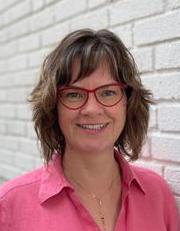
Katherine E Sorrels
Professor of History
Affiliate Faculty, Judaic Studies
,
History
353C ARTSCI
Personal Website
Katherine Sorrels researches and teaches modern European and North American history, with thematic interests in the history of medicine, ecology, and landscapes.
She directs UC's Center for Cultural Landscapes and its flagship initiative, the Stowe Garden Project.
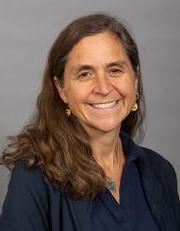
Anne Delano Steinert
Asst Professor - Research (F2), History
301B ARTSCI
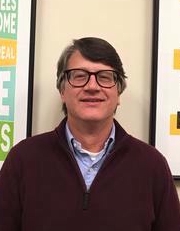
David S Stradling
Zane L. Miller Professor of Urban History; Interim Head, Department of History , History
360 ARTSCI
David is the author of several books, including The Nature of New York: An Environmental History of the Empire State (Cornell University Press, 2010), Making Mountains: New York City and the Catskills (University of Washington Press, 2007), Smokestacks and Progressives: Environmentalists, Engineers and Air Quality in America, 1881-1951 (Johns Hopkins University Press, 1999), and, with Richard Stradling, Where the River Burned: Carl Stokes and the Struggle to Save Cleveland (Cornell University Press, 2015). He is currently writing a global history of dredging.
David earned his PhD from the University of Wisconsin-Madison in 1996, after having earned a BA and MAT from Colgate University. Living in Clifton, he raised two daughters with his partner Jodie, and he commutes to campus on foot through Burnet Woods.
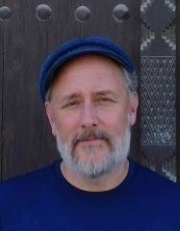
Willard Sunderland
Henry R. Winkler Professor of Modern History, History
360F ARTSCI
Sunderland's principal research interests are in the history of the Russian Empire in the modern period. Over the course of his career, he has lived and traveled extensively throughout the Russian Federation as well as the other states of the former Soviet Union.
He is the author of two books and co-editor of four volumes of scholarly essays on varied topics connected to Russia's imperial history. His The Baron's Cloak: A History of the Russian Empire in War and Revolution, appeared with Cornell University Press in 2014 and was recognized with publication awards from the Association for the Study of the Nationalities (ASN), the Association for Slavic, East European, and Eurasian Studies (ASEEES), and the Ohio Academy of History.
Sunderland's current book-in-progress is a travelogue/history of John Quincy Adams' voyage to Russia in 1809 as the first US ambassador appointed to the Russian court. Following John Quincy's route, Sunderland sailed to the edge of Russia himself with his friends and fellow Cincinnatians Tom and Chuck Lohre in his sailboat Clio in the summer of 2023. John Quincy's trip from Boston to St. Petersburg took 80 days. Sunderland's from Boston to Kotka, Finland, located just shy of the Russian border, took 76.
In addition, Sunderland is also working on a book focused on the history of Russia and the world in the age of Peter the Great as well as new research related to Russian maritime history, the history of the Russian Far East and Northern Pacific, and Sino-Russian relations.
From 2015 to 2022, he worked as a co-editor for the journal Kritika: Explorations in Russian and Eurasian History, and served from 2018 to late 2021 as academic supervisor for the international research laboratory "Russia's Regions in Historical Perspective" based at the National Research University Higher School of Economics in Moscow.
Sunderland's research has been supported by grants from a range of leading institutions and organizations including the National Endowment for the Humanities, the Woodrow Wilson International Center for Scholars, the Fulbright Scholar Program, the International Research and Exchanges Board, the Social Sciences Research Council, and the National Council for Eurasian and East European Research.
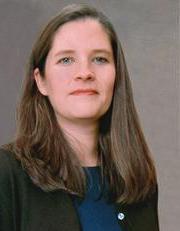
Tracy L. Teslow
Associate Professor, History
310D ARTSCI
Her current research project examines the role of racial science and scientists in adoption in the United States. In the 20th century child welfare workers and organizations routinely applied notions of race, derived from racial science, to children, foster families, and adoptive families. Concern with “matching” wayward children with “appropriate” families led social service workers to seek out anthropologists for their expertise. In examining the role of racial science in American adoption, my study will explore how the quotidian conceptual and methodological pragmatism of applied anthropology intersects with and often reinforced deeper philosophical, normative commitments. Matching Families: Race and Science in American Adoption asks why and how ideas about race persist in science, and what work they have done and continue to do in society. What kinds of scientific—and more importantly, social—problems has this tool been used to solve? Placing racial anthropology in a broader historical and cultural framework will enable us to better understand the historically specific roles of science, race, and biological essentialization in American society by focusing on its application in the realm of child adoption practices.
She received her B.A. in journalism from the University of Minnesota, and her M.A. in history and Ph.D. in history of science from the University of Chicago.
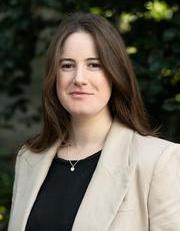
Zoe Waldman
Department of History, History
Her current book project, Landscapes of Power: The Meaning of Treaties in Eastern North America, 1750-1790, reconstructs Indigenous-European-American treaty councils through place-based case studies. She argues that as European-American delegates imagined, projected, or wielded power at these events, treaties remained spaces of Indigenous authority and became microcosms of resistance. Native delegations’ diplomatic skills and decision-making enabled nations both large and small to preserve their homelands, protect their towns, and maintain their usufructuary rights from the mid-eighteenth century through the early nineteenth century within and outside the boundaries of eastern colonies and states.
Dr. Waldman earned her PhD from the University of Michigan, her MPhil from the University of Cambridge, and her BA from Brandeis University. Her research has been supported by the Newberry Library (Newberry Consortium in American Indian Studies) and the American Philosophical Society (Phillips Fund for Native American Research & David Center for the American Revolution).
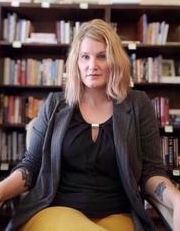
Rebecca Shirley Wingo
Director of Public History, History
320C ARTSCI
Along with Jason Heppler and Paul Schadewald, Wingo edited an open-access volume called Digital Community Engagement exploring model practices and ethical challenges of academic and community partnerships. Their volume won the 2021 Book Award from the National Council on Public History. Wingo is also the co-author of an award-winning book, Homesteading the Plains: Towards a New History.
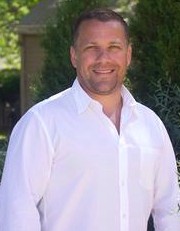
Jeffrey Zalar
Associate Professor of History; Ruth J. & Robert A. Conway Endowed Chair in Catholic Studies; Affiliate Faculty Member, Department of Judaic Studies, History
ARTSCI
Affiliate Faculty
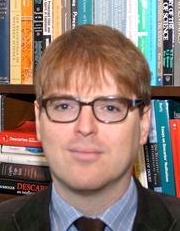
Zvi Biener
Professor (F2), History
5253 CLIFTCT
He is Editor-in-Chief of the PhilSci-Archive and the Vice-President and President-Elect of the International Society for the History of Philosophy of Science (HOPOS).
Dr. Biener's work is in historical philosophy of science. Other work includes philosophy of data, AI, and empirical research into loneliness.
See personal website here.
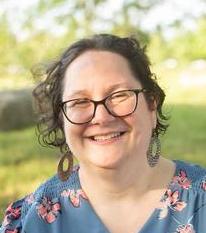
Jennifer Ann Caplan
Assoc Professor, History
French Hall
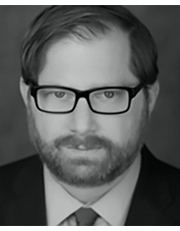
Jacob K. Cogan
Judge Joseph P. Kinneary Professor of Law, History
529 COLLAW
Professor Cogan’s research focuses on the hidden assumptions, informal rules, and constitutive decisions and structures that form the operational international legal system. He also writes about the history of international law. He is the coeditor of Proceedings of the 112th Annual Meeting of the American Society of International Law (2019), The Oxford Handbook of International Organizations (2016), and Looking to the Future: Essays on International Law in Honor of W. Michael Reisman (2011). Professor Cogan’s articles and essays have appeared in American Journal of International Law, the European Journal of International Law, the Harvard International Law Journal, the Journal of the History of International Law, and the Yale Journal of International Law, among many other journals. In 2010, he was awarded the Francis Deák Prize of the American Society of International Law.
Professor Cogan is the Faculty Director of the Cincinnati Center for the Global Practice of Law, the Deputy Editor of the Human Rights Quarterly, a member of the Executive Council of the American Society of International Law, an elected member of the American Law Institute, and a member of the editorial boards of the International Organizations Law Review, the Elgar International Law Series, and Oxford International Organizations. He previously served as Associate Dean of Faculty. The College of Law has recognized both his teaching and his scholarship by awarding him the Goldman Prize for Excellence in Teaching and the Harold C. Schott Scholarship Award. He is the publisher of the International Law Reporter, a widely read and relied upon blog on scholarship, events, and ideas in international law, international relations, and associated disciplines.
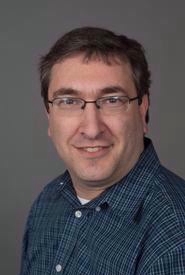
Ari B Finkelstein
Associate Professor, Judaic Studies, History
3510 French Hall
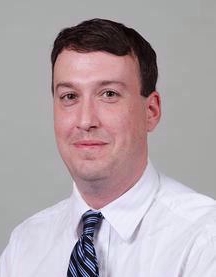
Timothy Steven Forest
Associate Professor, History
BA MUNTZ
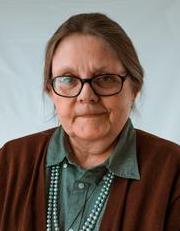
Janine C Hartman
Professor of History,, History
5259 CLIFTCT
History
Dept Romance Languages and Literatures
College of Arts & Sciences
717D Old Chem Bldg
Ph 556-1596
My field is the history of ideas. Current research interests are Catulle Mendés,Parnassian poet and his role as witness to the Franco-Prussian war, the Commune insurrection and fall of Paris in 1871, as refracted through "ruin studies." Additional fields include witchcraft, ritual in early modern society and symbolic sovereignty in French colonial history..
Affliiate: History,Judaic Studies, Women & Gender Studies
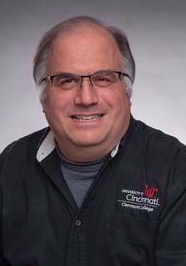
Frederic James Krome
Professor (F2), History
272L CC Snyder Addition
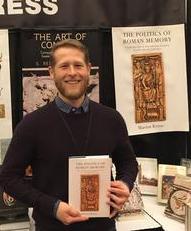
Marion Kruse
Associate Professor, History
220 Blegen Library
My current work focuses on topics ranging from the textual tradition of Cassius Dio to the structure of the Roman military high command in late antiquity and the role of the Roman government in the formation of the Christian Church.
My full CV as well as samples of my publications may be found on my Academia page.
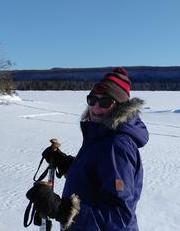
Margo M Lambert
Associate Professor of History, History
275D BA MUNTZ
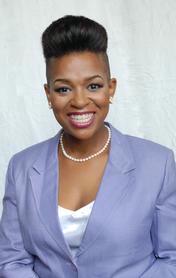
Holly Y McGee
Associate Professor, History
ARTSCI
Presently, Dr. McGee is conducting research for her book, a biographical oral history of South African activist Elizabeth Mafeking. Mafeking was one of four women featured in Dr. McGee's dissertation, “When the Window Closed: Gender, Race, and (Inter)Nationalism, the United States and South Africa, 1920s-1960s,” which put into conversation existent and new scholarship regarding black radical women of the Left in the United States and South Africa during the twentieth century and was primarily concerned with the evolution of women’s protest from localized issues of race-based discrimination to international, anti-colonial protests of the era.
Dr. McGee’s most recent publication credit, “‘It was the wrong time and they just weren’t ready’: Direct-action protest at Arkansas Agricultural, Mechanical & Normal College (AM&N),” appeared as a reprint in Arsnick: The Student Nonviolent Coordinating Committee in Arkansas, an edited collection on SNCC’s pivotal role in transforming the status of racial discrimination in Arkansas in the 1960s. Additionally, she has forthcoming articles in the fields of local Arkansas history, and South African women's history.
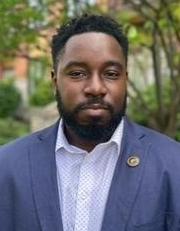
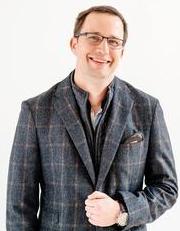
Peter Williams Niehoff
Asst Professor - Adj (F9), History
ARTSCI
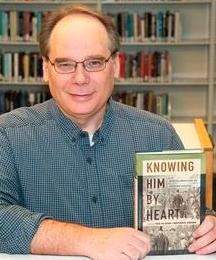
Matthew D. Norman
Associate Professor of History, History
BA MUNTZ
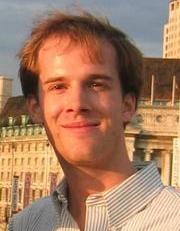
Chris Platts
Asst Professor (F2), History
6489C Aronoff Center
Research
Platts studies medieval and Renaissance European art, focusing on Italian painting and manuscript illumination, ca. 1250-1550. He is currently completing a book on Paolo Veneziano and Venetian Gothic painting as well as studies on Pietro and Ambrogio Lorenzetti, Andrea Mantegna, and Attavante. Chris is interested in the style, iconography, design, and function of artworks in relation to their patrons and diverse audiences. He trained at Harvard, the Courtauld Institute, and Yale, and has held residential fellowships at the Fondazione Roberto Longhi in Florence, Italy, and the University of Heidelberg.
Curatorial Experience
Platts is active as a curator, having conceived and co-organized exhibitions on medieval, Renaissance, and modern art at the Getty Museum (“Renaissance Splendors from the Northern Italian Courts," summer 2015); Yale University Libraries (“Representing the Law in the Most Serene Republic: Images of Authority from Renaissance Venice,” winter 2016-17); University of Connecticut (“The Fabulous Lives of Morton, Nellie, and Maisie Plant: Art and Leisure in Gilded-Age Groton,” spring 2019); Vassar's Frances Lehman Loeb Art Center ("The Great Wonder: Violet Oakley and the Gothic Revival at Vassar," spring 2021); and the University of Cincinnati ("Rediscovering Catharina van Hemessen's Scourging of Christ: Women Artists, Patrons, and Rulers in Renaissance Europe").
Technical Study of Art
With colleagues in Chemistry, Geology, and Museum Studies, Platts uses scientific instruments to examine art in local and regional museums and collections. This research group, which he co-coordinates, has used X-ray fluorescence (XRF) and Raman spectroscopy, among other approaches, to study works attributed or related to Bernardo Daddi, Pietro Lorenzetti, Raphael, Catharina van Hemessen, Palma Giovane, and Anthony Van Dyck. Currently, the group is studying a little-known, signed work by Catharina van Hemessen, one of the most significant female artists of the Renaissance.
Community Outreach
Platts has developed an educational outreach program in which he and University of Cincinnati (UC) students create and deliver object-centered presentations on medieval, Renaissance, and Baroque art to local classrooms at Cincinnati public high schools and the Osher Lifelong Learning Institute (OLLI). He and the UC students bring manuscript illuminations, prints, and illustrated books (as well as replicas of artists' tools and materials) to the classrooms so that students can examine and physically handle centuries-old artworks.
Art Documentation & Discoveries
Another ongoing project is an informal census of pre-1700 European paintings, drawings, and illuminated manuscripts in lesser-known or smaller institutions (museums, libraries, universities) in the Midwest and other regions of the US. Chris has discovered important artworks by Paolo Veneziano, Attavante, and other artists.
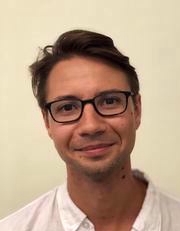
Calloway Brewster Scott
Assistant Professor, History
Blegen Library
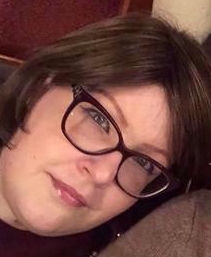
Krista Sigler
Professor (F2), History
275A BA MUNTZ
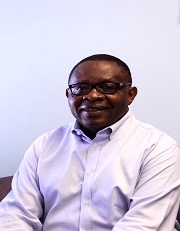
Joseph Takougang
Professor, Department Head, History
3428C French Hall
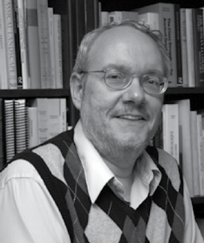
Peter Van Minnen
Professor, History
311A Blegen Library
He has taught seminars on Alexandria (Greek papyri), Keos (Greek inscriptions), Latium Vetus (Latin inscriptions), and Roman North Africa, as well as more topical seminars (e.g., religion in the Hellenistic and Roman Imperial worlds). He has set specials ranging from the Persian Empire and the economy of Classical Athens to Roman law and Greek and Latin patristics. His students have worked on Late Antique poetry, religion, and urban history, and on the transition from the Republic (or Hellenistic period) to the early Roman Empire from a variety of perspectives (literature, institutions, iconography, coins). Almost all PhDs hold tenure-track academic positions in the US or abroad.
He is currently engaged in two projects: the edition of a family archive from Hermopolis (with Greek athletes in the family) and a study of documents from Alexandria (complementing archaeology and literature; with a web component, https://classics.uc.edu/users/vanminnen/ancient_alexandria/). His publications now number well over 200 and include studies of the archaeological context of literature and documents, the Roman economy, and women in Greco-Roman Egypt. He loves numbers and looks forward to sharing his passion for agriculture, demography, and taxation… Since 2006 he edits the Bulletin of the American Society of Papyrologists, which involves one or two graduate assistants.
For more information, see his academia.edu page (https://uc.academia.edu/PetervanMinnen), and for a CV see https://classics.uc.edu/cv/PVM-CV2023-WEB.pdf.
Matthew Herbert Williamson
Assoc Dir Academic, History
480 Langsam Library

Dana Herman
Dr. Dana Herman is the Associate Director of the American Jewish Archives. She earned her PhD from McGill University in 2008. She is the long-time managing editor of the Journal of the American Jewish Archives.

Gary Zola
Dr. Gary Phillip Zola is the former Executive Director of The Jacob Rader Marcus Center of the American Jewish Archives (AJA), the world’s largest free-standing research center dedicated solely to the study of the American Jewish experience.
Emeriti Faculty
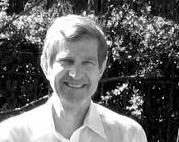
John Kurt Alexander
Professor Emeritus, History
Professor Emeritus, History
5138617462
alexanjk@ucmail.uc.edu
John K. Alexander, who grew up in Portland, Oregon, joined the University of Cincinnati faculty in 1969 and became Professor Emeritus on August 15, 2012. He received his Ph.D. from the University of Chicago. While his primary research interests are in the era of the American Revolution, he has special interest in the history of the media, of poverty and of crowd violence in American history generally.
Professor Alexander has been recognized for his teaching and concern for students. In 1975 he received the University of Cincinnati’s A. B. “Dolly” Cohen Award for Excellence in University Teaching and was elected to Omicron Delta Kappa; in 1989 he was given the Faculty Emphasis On Diversity Award of the University of Cincinnati’s Racial Awareness Pilot Project; in 2002 the Ohio Academy of History presented him its Outstanding Teacher Award; the University of Cincinnati honored Professor Alexander by bestowing its Distinguished Teaching Professor Award on him in 2003; in 2009 the African American Cultural & Research Center in conjunction with the African American Alumni Association gave him its Award of Appreciation for his “dedication and commitment to the students of the University of Cincinnati.” Professor Alexander’s other awards include being selected as the first George Washington Distinguished Scholar of The Tri-State Association of The Society of The Cincinnati (1999) and his inclusion in Who's Who in American Education and inWho’s Who in America.
He is the author of the following books:
Samuel Adams: The Life of an American Revolutionary (Lanham, MD: Rowman & Littlefield Publishers, 2011). This work, which was an “Editor’s Pick” in the July 2011 History Book Club offerings, was selected as a Choice Outstanding Academic Title, 2011.
Samuel Adams: America’s Revolutionary Politician (Lanham, MD: Rowman & Littlefield Publishers, 2002 and paperback edition issued 2004).
The Selling of the Constitutional Convention of 1787: A History of News Coverage (Madison: Madison House for The Center for the Study of the American Constitution, University of Wisconsin-Madison, 1990)
Render Them Submissive: Responses to Poverty in Philadelphia, 1760-1800 (Amherst, MA:The University of Massachusetts Press, 1980)
Alexander has published articles in The William and Mary Quarterly, Early American Studies, The New England Quarterly, The Pennsylvania Magazine of History and Biography, Pennsylvania History, Essex Institute Historical Collections, and Vermont History. He produced the annotated entry on the United States Constitution for “Special Report on the Constitution’s Bicentennial,” The Los Angeles Times, September 13, 1987 (Special Report, pp. 4-8) as well as “‘High Crimes’: A Yardstick Made by History,”The Los Angeles Times, December 19, 1998 (National Edition, A15, co-authored with Richard T. Cooper).
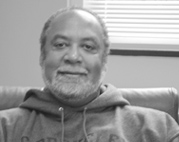
John K. Brackett
Professor Emeritus, History
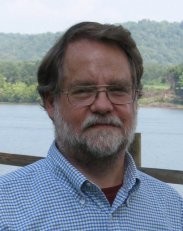
Charles Frederick Casey-Leininger
Educator Associate Professor Emeritus, History
Recently, I was appointed Director of Public History with the charge to expand course offerings to our students and to build stronger connections between our faculty and students and the wider community interested in history. One of the most important parts of this is helping history majors and minors and graduate students find internships at area museums, libraries, and other institutions. It’s great to see students have such valuable hands on experience doing what professional historians do.
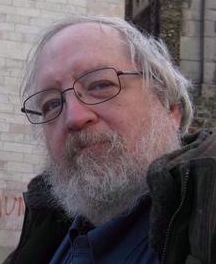
Mark A. Lause
Professor Emeritus, History
Lause has done extensive work in nineteenth century labor and social history, including numerous articles in academic journals and reference material. His initial work focused on early printers to discuss the origins of an American labor movement: “Some Degree of Power”: From Hired Hand to Union Craftsman in the Preindustrial American Printing Trades, 1778-1815. (Fayetteville: University of Arkansas Press, 1991) documented the first generation of unionists in that craft.
Lause’s subsequent work has sought new ways of examining and understanding the sectional crisis and the Civil War "from the bottom up." He argued for the complexity of the Republican and Unionist coalition—before and after—in Young America: Land, Labor, and the Republican Community (Urbana IL: University of Illinois Press, 2005) on the antebellum land reform movement and The Civil War's Last Campaign: James B. Weaver, the Greenback-Labor Party & the Politics of Race & Section (Lanpham, Md.: University Press of America, 2001). His Race & Radicalism in the Union Army (Urbana IL: University of Illinois Press, 2009) explores the wartime collaboration of blacks, Indians and whites in the Transmississippi under the leadership of those abolitionists, land reformers, socialists and others who had been associated with John Brown before the Civil War. The Antebellum Political Crisis & the First American Bohemians (Kent, OH: Kent State University Press, 2009) discusses the cultural impact of escalating sectional and electoral pressures on antebellum radicalism. His Price's Lost Campaign: the 1864 Invasion of Missouri (Columbia: University of Missouri Press, 2011) uses social and institutional history to cast light on the neglected Civil War expedition that largely closed the conflict west of the Mississippi River. A Secret Society History of the Civil War (Urbana: University of Illinois Press, 2011) examines the importance of several clandestine, fraternal traditions as a means of understanding how ordinary citizens, including African Americans, struggled to shape their history. The reorganization of the U of Missouri Press delayed the appearance of his book on the last part of the 1864 Missouri campaign, The Collapse of Price's Raid: the Beginning of the End in Civil War Missouri, but it should appear in the summer of 2015. This will coincide with his Free Labor: the Civil War & the Making of the American Working Class, the completion of a research project begun years earlier. His book on spiritualism and the politis of the Civil War era is also due to appear. Lause is also finishing a manuscript about the cowboy strikes of the 1880s.
In addition, Lause expects soon to submit The Last Republicans, a treatment of Giueseppe Garibaldi's republican internantional brigades in the Franco-Prussian War as the final gasp of an old ideal of republicanism. He has also started a project on the related cantonal revolts of 1873-1874 in Spain. All of this is aiming at a general understanding of Reconstruction in the U.S. from a global perspective.
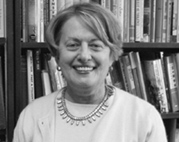
Barbara Ramusack
Charles Phelps Taft Professor; Professor Emerita, History
Staff
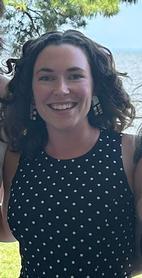
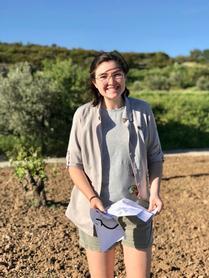

Cam Kruse
Program Director, History
360D ARTSCI
